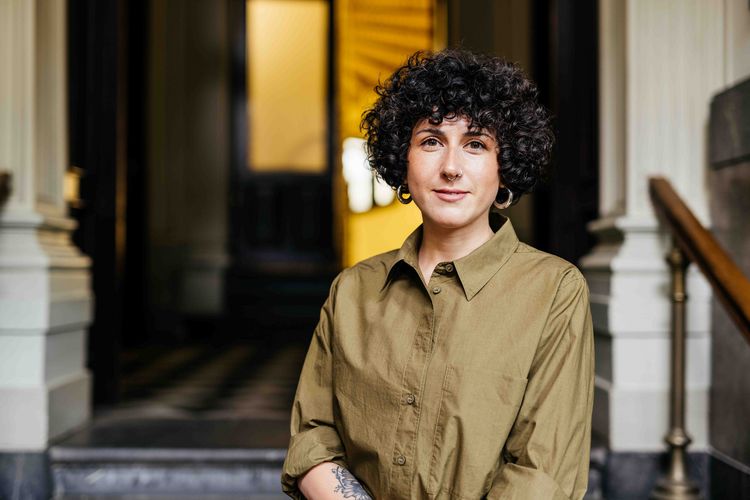What did you study and where?
I received my PhD in the Study of Religion from Harvard University. My dissertation, titled “The Noise Silence Makes: The Ghanaian State Negotiates Ritual Ban on Noise Making in Accra,” investigated sonic restrictions imposed in the framework of a harvest festival of the Ga community in Accra, and what the state’s involvement in regulating these restrictions tells us about secularity in Ghana.
I also hold two MA degrees in Religious Studies and Nationalism Studies from the University of Missouri, Columbia and the Central European University respectively. My BA degree is in History from the American University in Bulgaria.
What were the most important or most recent stages in your career since then?
Prior to this position, I was a Research Associate [Wissenschaftliche Mitarbeiterin] in the Department for the Study of Religion at the University of Bayreuth and a Senior Research Fellow at the KFG “Multiple Secularities” here in Leipzig.
What fascinates you about your field of research and what do you focus on in particular?
There is a common thread running through my research projects, and that is the question of power in the context of West Africa, and to a lesser extent, Georgia. My background plays no small part in this. Coming from a region that has historically been understood as “peripheral,” I gravitate towards a postcolonial lens in the study of religion, eager to investigate religious pathways and lifeworlds that have been relegated to the margins. My attempts to listen more closely to the voices of the delegitimized and silenced have been both symbolic and literal. Working with sound studies, my recent work has traced the sonic profiles of African traditional religions and the auditory preferences of non-human entities in the secular public sphere. Critical interrogation of the belief-oriented lens pervasive in the study of religion also led to my fascination with questions related to lived religion, material religiosity, and multiple secularities.
Have you set yourself a specific research goal for your work at Leipzig University? What is it?
As part of my interest in discourses of religion- and culture-making, I am excited to embark on a new research project at Leipzig University. The goal is to explore the genealogical construction of African Traditional Religion as a conceptual category in the second half of the twentieth century in the Anglophone African academia. This multi-sited project is both historical and ethnographic, as it will build on archival research in several national and university archives, as well as interviews with African scholars prominent in teaching and thinking with African religions. Such an investigation of African Traditional Religion promises invaluable insights into how traditional religions are viewed and represented today.
Can you briefly name some of the focuses you would like to set in your teaching?
My geographic focus on West Africa is largely responsible for my penchant for courses that explore postcolonial and critical approaches to the study of religion, and African religions in particular, the corporeal and sensory dimensions of lived religion, and the role of religion in projects of modernity and nation-building. I am always eager to bring contemporary cultural artifacts – films, novels, journalism pieces, apps, songs, advertisements, paintings – in the classroom, using them as primary sources to examine the worlds students move through. The overall goal of my teaching is to cultivate not only adept learners but also engaged citizens who can analyze and develop arguments that both support and challenge their own worldviews.
Please finish the following sentence: “For me, Leipzig University is...”
an instant intellectual home where I feel valued and encouraged to carry out innovative research. I am in the company of outstanding colleagues from a variety of disciplines who are eager to provide feedback and collaborate on new projects, as well as exceptional staff who keep the wheels of the university turning.
What are your hobbies?
I love spending quality time with friends and family, so most of the activities I enjoy these days are communal. This might include going for long walks or bike rides with my partner and daughter, traveling around to discover new places and rediscover old ones, cooking homemade meals for friends, or picnicking in the park.
Do you have a particular life motto that helps you through difficult phases?
When life gets particularly overwhelming and I feel lost in a sea of tasks and emotions, I like to tell myself to slow down and “take it one step at a time.” I find that tackling one challenge at a time helps me tune out the often debilitating noise of everyday life and appreciate smaller victories.
Would you mind telling us when and where you were born?
I was born in 1986 in Tbilisi.
